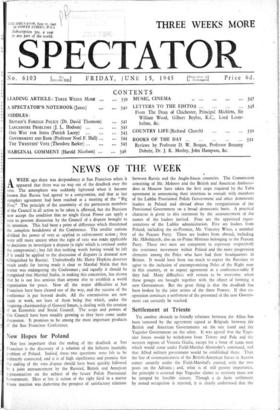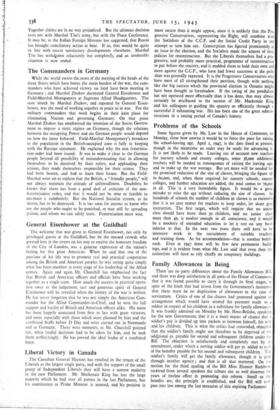Settlement at Trieste
Yet another obstacle to friendly relations between the Allies has been -removed by the agreement signed at Belgrade between the British and American Governments on the one hand and the Yugoslav Government on the other. It was agreed that the Yugo- slav forces would be withdrawn from Trieste and Pola and the western regions of Venezia Giulia, except for a force of 2,000 men which would come under Field-Marshal Alexander's command, and that Allied military government would be established there. Thus the line of communications of the British-American forces in Austria comes securely under the Field-Marshal's control, with the two posts on the Adriatic ; and, what is of still greater importance, the .principle is asserted that Yugoslav claims to territory must not be jumped by forcible seizure. Though a de facto settlement by armed occupation is rejected, it is clearly understood that the
Yugoslav claims are in no way prejudiced. But the ultimate decision rests not with Marshal Tito's army, but with the Peace Conference. It may be, as the Italian Foreign Minister has suggested, that Russia has brought conciliatory action to bear. If so, that would be quite in line with recent satisfactory developments elsewhere. Marshal Tito has withcliawn reluctantly but completery, and an intolerable situation is now ended.



























 Previous page
Previous page